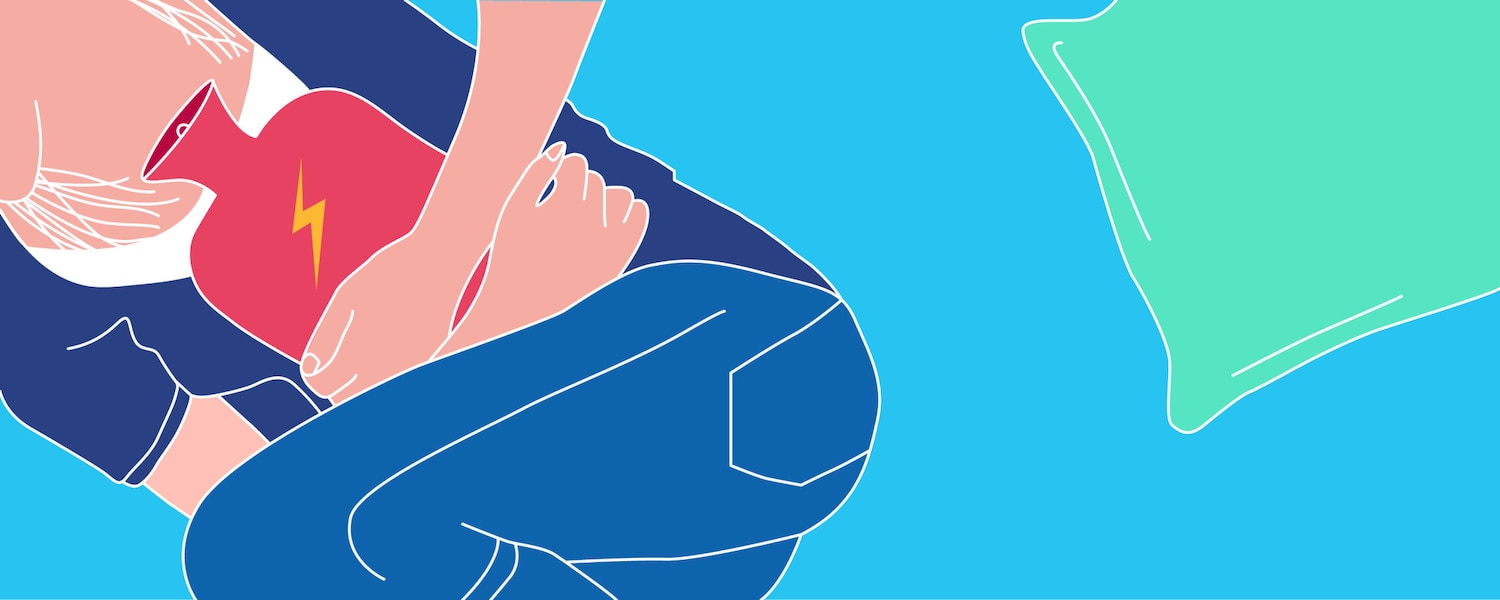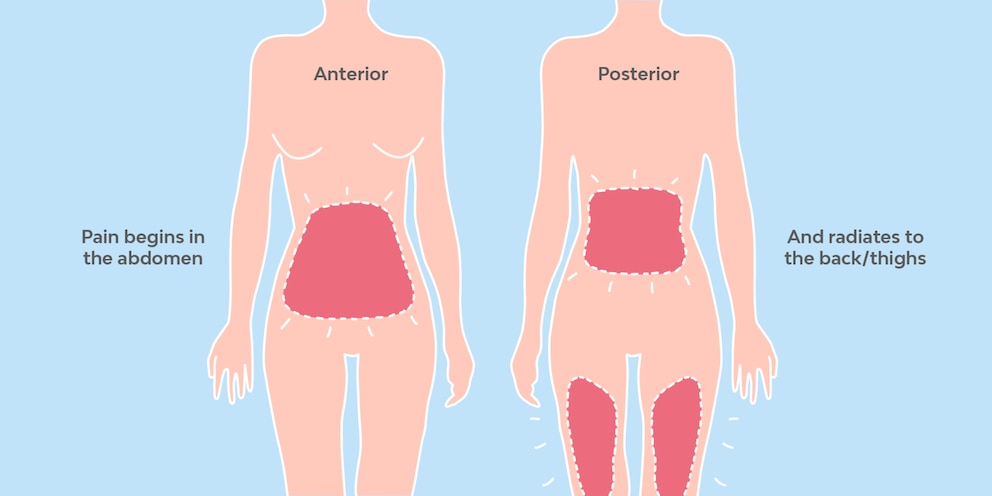
Why do women get period pain?

One of the least fun aspects of menstruation is period pain.
Most women – studies suggest up to 80% [1] – experience pain or discomfort before and during their periods, and this is mainly caused by the uterus (womb) contracting in order to shed the uterine lining.
It’s most common to get this pain, which feels a bit like cramping, just before a period, typically lasting a day or two. It can occur in the pelvis, back, thighs or stomach. It usually starts just below the navel and radiates out towards your thighs and back. The severity of these period cramps differs from one woman to another. In some cases, they’re a mild ache. In others, they can be severe and even cause vomiting. Further symptoms can be loose stools, headaches and dizziness. Definitely not fun.
Working out how to stop period cramps will make all the difference to how a woman feels about her periods. Most find they can’t be ignored, but a few simple steps will help minimise them.

Over-the-counter painkillers will nip cramps in the bud, but should always be taken after food, or with a glass of milk, to protect the stomach lining. And while it might not seem appealing at the time, exercise – even a walk – helps increase blood flow, oxygen levels and endorphin levels (nature’s painkilling and feel-good hormones). All of which helps the body to relax. Massage and heat will also loosen up your muscles, so a hot bath, or hugging a hot water bottle are both recommended. Ice cream can help too – not in any medicinal way, but just to make you feel happy.
In a few cases, painful menstruation – or dysmenorrhoea – can get in the way of you living your life. In one study, up to 14% of women reported frequently being unable to go to work because of period pain [2]. But there’s no need to suffer. If your period cramps are this severe, talk to a doctor. In some cases, hormonal contraception can reduce period pain. Occasionally, period pain can be caused by an underlying medical condition, such as endometriosis or pelvic inflammatory disease. But where there isn’t an underlying condition, severe period pain tends to improve as women get older, and also after they have children.



